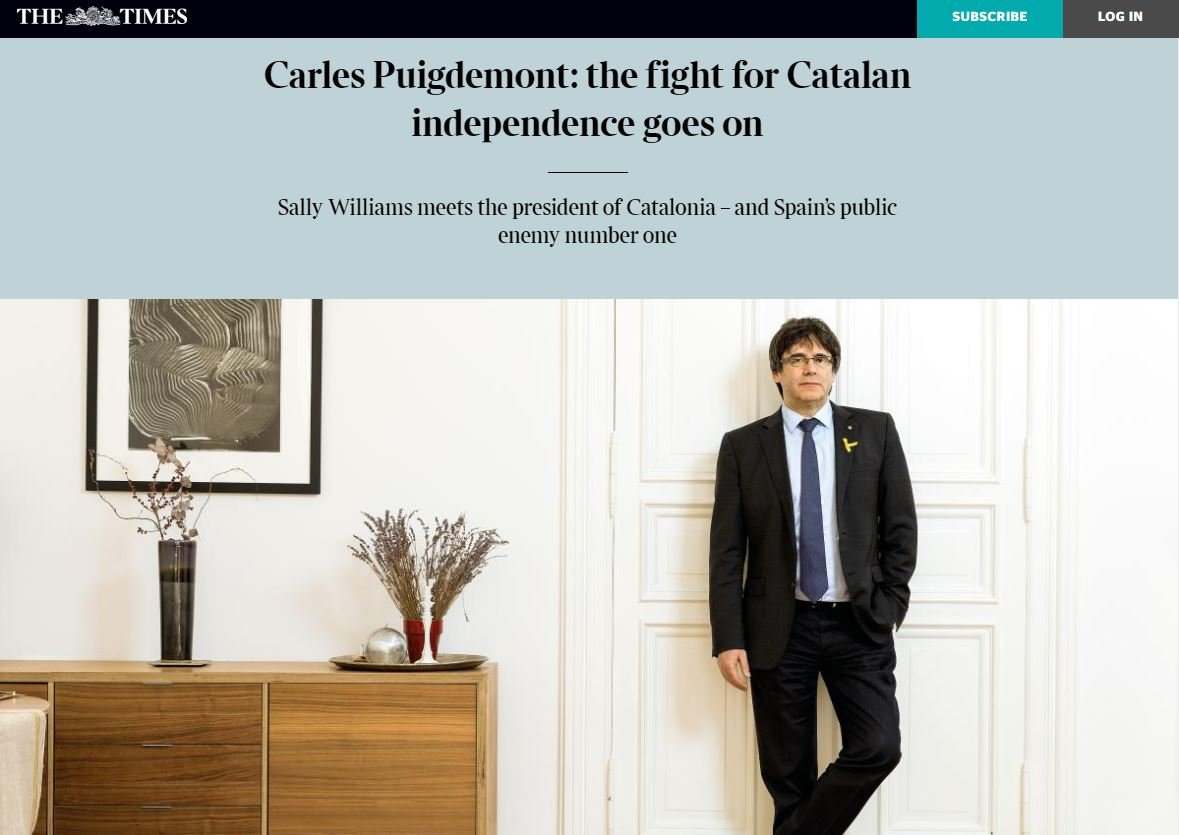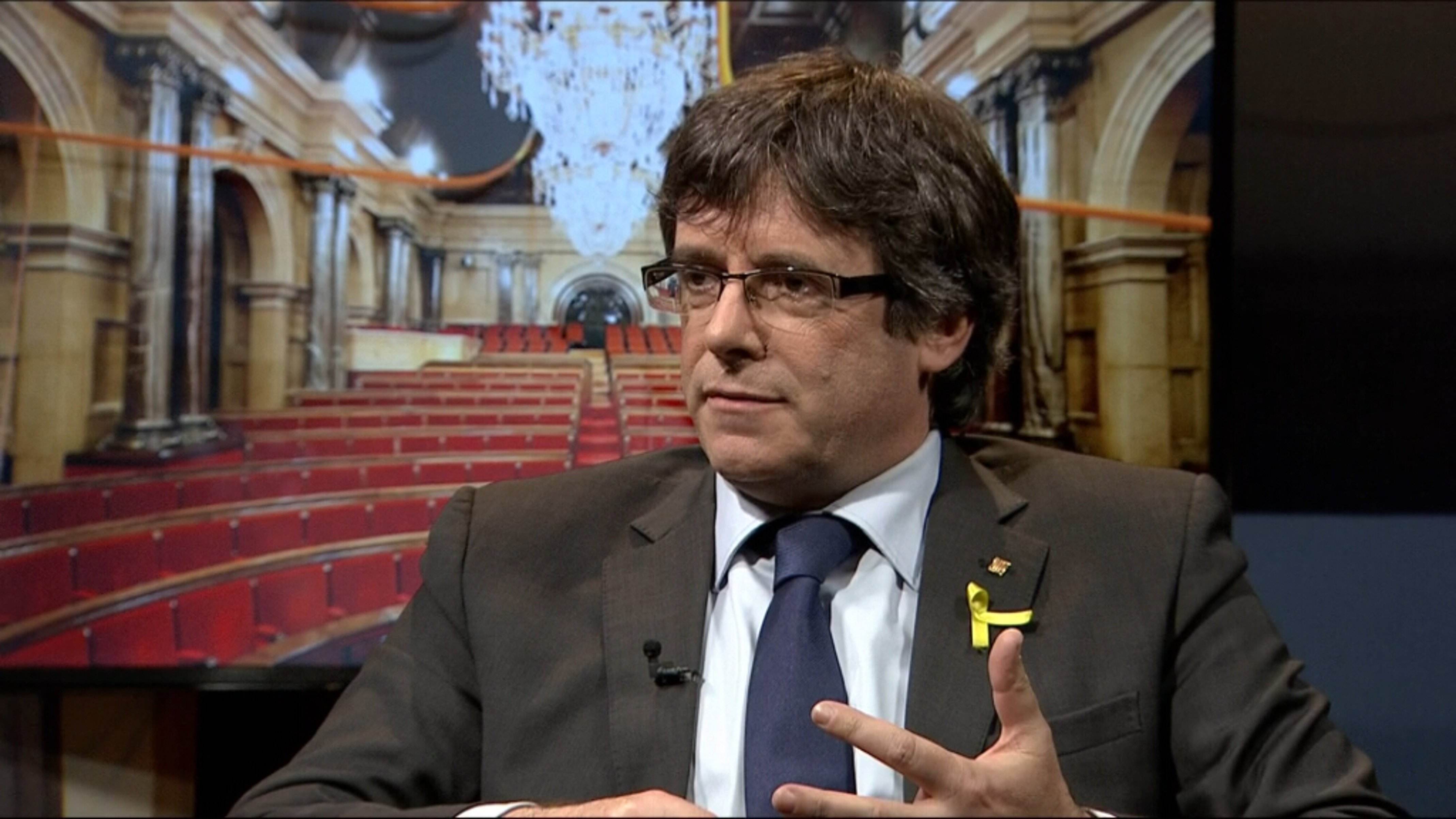Catalan president Carles Puigdemont has affirmed in an interview with UK newspaper The Times, that "the fight for Catalan independence goes on" - a quote which the conservative London daily offers as its headline. In an interview with a close, personal tone (paywall access), the newspaper highlights the political strength of the Catalan independence movement and the importance of the figure of Carles Puigdemont, whom they portray as "Spain's public enemy number one" at present.
Puigdemont admits to The Times that the Catalan leadership did not expect such a "heavy handed" repressive reaction from Mariano Rajoy's Spanish executive on October 1st. "We hoped that after 40 years of democracy, and becoming a member of the European Union, there was a new generation. We were wrong," he confesses. The president judges now that, in the light of what has happened, "there was never going to be dialogue with the Spanish state" and admits that he made an error in suspending the declaration of independence - on October 10th - in the hope that political talks could begin.
Puigdemont recognizes that he never thought of handing himself over to Spanish justice, since he believes that he would become a "hostage with no freedom of speech, no freedom of movement". The president states that his goal, and that of the other exiled political leaders, it is make use of their freedom "to defend our situation and denounce the Spanish authorities".
On the other hand, the president also speaks of the personal difficulties that this situation means for him, forced to be far away from his wife and his two daughters, Magalí and Maria, 8 and 10 years old respectively. "Not to be able to kiss my daughters every night, to tell stories … It is impossible to get used to that situation." He says that he talks to them using FaceTime, but that "they are scared. I can see it in their eyes", the Times reports.
The Catalan president thus explains the uncertainty in which he is living in the interview and affirms that he treats the situation as temporary. "The most realistic option is not to have a plan for the future. In the worst case, I will be extradited to Spain" and that could mean "decades in jail". If not, he recognizes, he will spend "a lot of years in exile". In any case, he intends to carry on his political activity in this situation.


